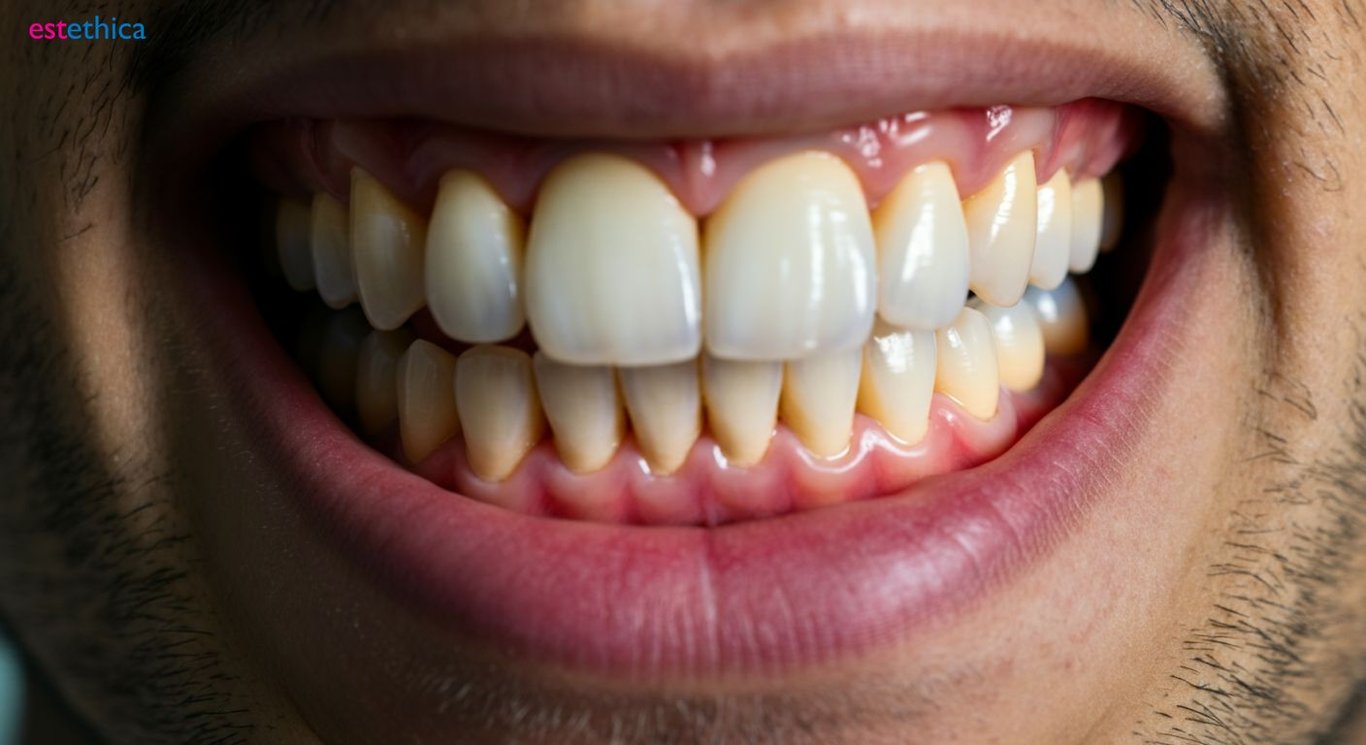Discover the Best Veneers for a Radiant Smile
Learn how veneers can enhance your smile. Discover the best options tailored for style and longevity.
Veneers are a popular choice for those looking to achieve a flawless smile. These thin pieces of porcelain or composite are custom-made to cover the front surface of teeth, offering an effective solution for a variety of dental imperfections. Whether you're looking to enhance the beauty of your natural teeth or need a complete dental makeover, veneers provide a durable and aesthetic option. They improve the appearance of your smile almost instantly. This comprehensive guide delves into everything you need to know about veneers, from the types available to the application process and their longevity.
Understanding Veneers: What You Need to Know
Exploring the Aesthetic Benefits of Veneers
Veneers are a popular choice in cosmetic dentistry due to their ability to transform smiles with minimal alteration to the original tooth structure. These porcelain veneers are designed to mimic the natural translucency of teeth, offering a realistic appearance. For instance, if you have chipped or discolored teeth, veneers can provide a seamless solution, enhancing your smile's overall aesthetic. Unlike other dental restoration options, veneers focus on the front surface, making them less invasive than crowns. This makes them an ideal choice for those seeking a subtle yet effective cosmetic enhancement.
Key Features of Veneers
- Natural appearance due to light-transmitting properties
- Minimal alteration of the original tooth structure
- Less invasive compared to crowns
These features make veneers a preferred option for many seeking cosmetic improvements. For those interested in the latest advancements, discover the magic of porcelain veneers to learn more about their transformative potential.
Application Process of Veneers
- Initial consultation to assess suitability and discuss desired outcomes
- Preparation of the tooth surface to ensure proper veneer adhesion
- Bonding of the veneer to the tooth, followed by adjustments for a perfect fit
The application process is straightforward, ensuring that patients achieve the best veneers for teeth with minimal discomfort. This method not only enhances the smile but also boosts confidence, making veneers a worthwhile consideration for anyone looking to improve their dental aesthetics.

Porcelain vs. Composite: Which Veneer is Right for You?
Durability and Aesthetic Appeal of Veneers
When choosing between porcelain and composite veneers, durability and aesthetic appeal are key considerations. Porcelain veneers are celebrated for their strength and ability to closely mimic the natural appearance of teeth. They are highly durable and resistant to stains, making them a long-lasting option for those seeking a permanent solution. In contrast, composite veneers offer a more affordable alternative with less tooth preparation required, but they may not last as long as their porcelain counterparts. This makes them a viable choice for individuals prioritizing budget over longevity.
Factors Influencing Veneer Choice
- Budget considerations and long-term investment
- Aesthetic goals and desired level of natural appearance
- Personal preferences regarding tooth preparation and maintenance
Understanding these factors can help you decide which type of veneer aligns best with your needs. Whether you prioritize the natural look of porcelain or the affordability of composite, each option offers unique benefits that cater to different preferences.
Steps to Achieve the Best Veneers for Teeth
- Consult with a cosmetic dentistry expert to discuss your goals
- Evaluate the pros and cons of porcelain vs. composite veneers
- Choose a reputable dental restoration provider for application
By following these steps, you can ensure that you select the best veneers for your teeth, enhancing your smile and boosting your confidence. Remember, the right choice depends on your individual needs and circumstances, so take the time to explore your options thoroughly.

The Application Process: How Are Veneers Applied?
Understanding the Steps of Veneer Application
The application of dental veneers is a meticulous process that enhances your smile with precision. Initially, your dentist will carefully trim a small amount of enamel from your teeth to ensure the veneers fit seamlessly. This step is crucial for achieving a natural look and feel. Following this, molds of your teeth are taken to create custom veneers that match your unique dental structure. During the interim period, temporary veneers may be applied to protect your teeth while the permanent ones are crafted in a lab. Once ready, these veneers are bonded to your teeth using strong dental adhesives, ensuring durability and stability. This entire process typically requires just two visits, making it a convenient option for those seeking a quick transformation.
Key Considerations for Veneer Application
- Enamel trimming is minimal, preserving most of the natural tooth structure.
- Custom molds ensure a perfect fit and natural appearance.
- Temporary veneers provide protection during the fabrication period.
These considerations highlight the importance of precision in the application process, ensuring that the veneers not only enhance aesthetics but also maintain the integrity of your natural teeth.
Factors Influencing Veneer Cost
- Material choice, such as porcelain or composite, affects overall expense.
- Complexity of the procedure and the number of veneers required.
- Geographic location and expertise of the dental practitioner.
Understanding these factors can help you navigate the options available, ensuring you make informed decisions about your dental restoration journey. While the cost of veneers can vary, the investment in a confident smile is often considered invaluable.

Long-lasting Beauty: Are Veneers Permanent?
Ensuring the Longevity of Your Veneers
While veneers are not permanent, they are quite durable and can last from 10 to 15 years, sometimes even longer with meticulous care. Regular dental hygiene practices and avoiding habits that can damage your teeth, such as nail biting or chewing ice, contribute significantly to the lifespan of your veneers. It's vital to maintain regular check-ups with your dentist to ensure your veneers remain in top condition.
Tips for Prolonging Veneer Lifespan
- Practice good oral hygiene by brushing and flossing daily.
- Avoid using your teeth as tools to open packages or bottles.
- Wear a mouthguard if you grind your teeth at night.
These practices not only help in maintaining the veneers but also ensure the overall health of your teeth. By integrating these habits into your daily routine, you can enjoy the benefits of veneers for many years.
Factors Influencing Veneer Durability
- Quality of the material used, such as porcelain or composite.
- Skill and expertise of the dental practitioner during application.
- Patient's adherence to recommended care and maintenance routines.
Understanding these factors can help you make informed decisions about your dental restoration options. While veneers offer a long-lasting solution, their durability is significantly influenced by the care and maintenance they receive.
Transformative Veneer Technologies for Aesthetic Dentistry
Precision in Veneer Application for Optimal Results
Frequently Asked Questions
What are veneers and how do they enhance dental aesthetics?
How are veneers applied to teeth?
What is the difference between porcelain and composite veneers?
Are veneers a permanent solution for dental restoration?
What factors influence the cost of veneers?
Discover the path to 'Healthy Beauty' with estethica's expert care. Call now for your free consultation and take the first step towards a more confident you!
📞 Call for Your Free Consultation